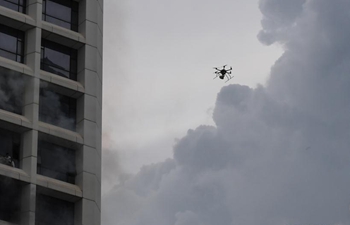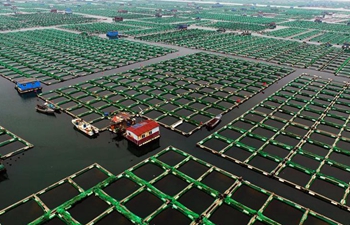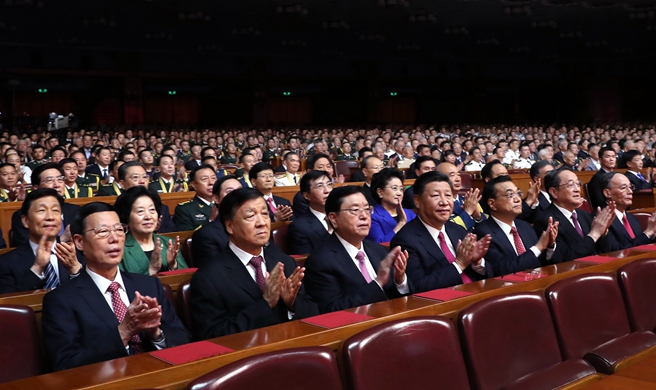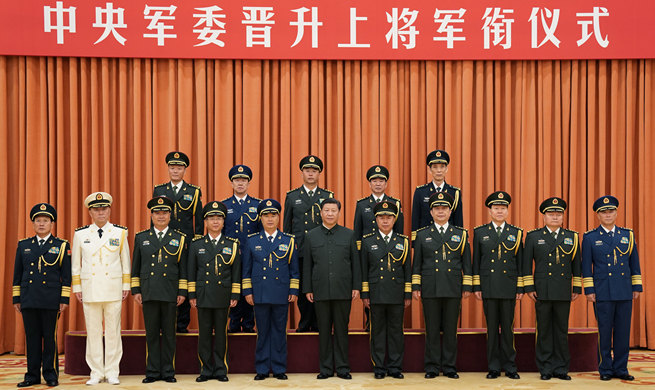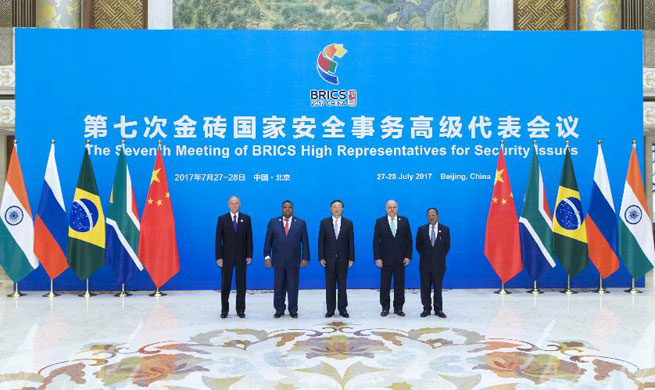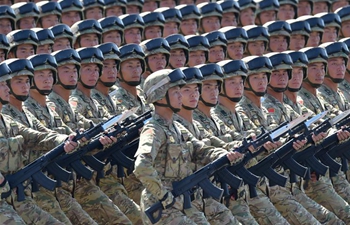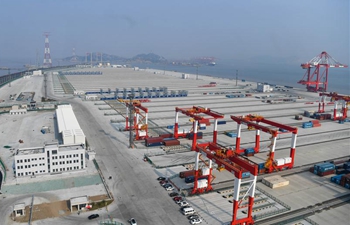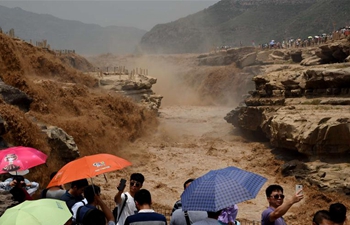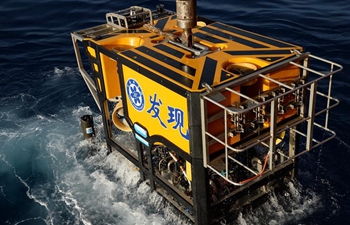TOKYO, July 29 (Xinhua) -- Japanese Prime Minister Shinzo Abe said early Saturday that the Democratic People's Republic of Korea (DPRK)'s latest missile launch underscores grave and real security threat to Japan.
He also said that Japan will stay alert about possible further provocations by the DPRK and Japan has no other option but to increase pressure on the DPRK with the international community.
Abe made the remarks when meeting with reporters after a National Security Council meeting convened early Saturday following the latest missile launch by the DPRK.
Japan's top government spokesman Yoshihide Suga said that Japan was assessing whether the missile launched by the DPRK Friday night was an intercontinental ballistic missile (ICBM).
He added that Japan's response to the missile launch would not be affected by Japanese Defense Minister Tomomi Inada's resignation on Friday and Japan will keep working closely with the United States and South Korea over the issue.
The Japanese government confirmed early Saturday that the DPRK had launched a ballistic missile around 11:42 p.m. Japanese time Friday.
The missile flew for about 45 minutes and appeared to have fallen into Japan's exclusive economic zone (EEZ), Suga said, adding that no damage has been reported to any vessel or aircraft.
He also said that the missile launch was in violation of the United Nations' related resolutions and Japan protests the missile launch on strongest terms.
South Korean Joint Chiefs of Staff said that the missile was launched into the East Sea of Korea from DPRK's Jagang province.
The South Korean military said early Saturday that the DPRK fired "advanced ICBM-class" missile, and it flied over 1,000 km and reached an altitude of 3,700 km.
The South Korean media also reported that the missile launch was immediately reported to South Korean President Moon Jae-in, who convened an emergency security meeting early Saturday.
On July 4, the DPRK announced a successful test-launch of an ICBM, dubbed Hwasong-14, which flew around 930 km and was lofted as high as about 2,800 km.
Expectations had run high among local and global media outlets for Pyongyang to test-fire ICBM to validate its reentry technology on or around July 27 that marks the 64th anniversary of the armistice agreement.
The Korean Peninsula is technically in a state of war as the three-year Korean War ended in armistice in 1953, not a peace treaty.






